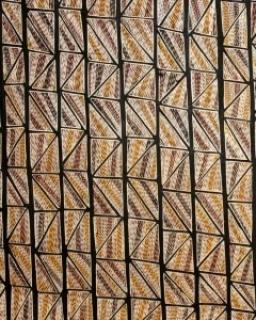
Abstract
This report focuses on Accord negotiations between the NSW Government and the Riverina Murray Regional Alliance (RMRA). It considers all aspects of developing the RMRA Accord, including the pre-negotiation phase, negotiations and signing of the Accord, also described as the Ngunggiyalali, and the subsequent negotiation of Schedules under it. As no Schedule has been signed into operation, this review has not been able to consider the implementation phase.
RMRA commenced negotiations with the NSW Government in 2019 using a distinctive case study methodology to highlight the inter-connectedness of issues across communities. Negotiations resulted in the RMRA Ngunggiyalali being signed on 19 August 2020. This Accord includes statements of key principles and processes which will shape the overarching structure for future negotiations. Since its signing, negotiations have centred around developing Schedules to the Accord. The first Schedule, Health, Healing and Wellbeing, was agreed by all NSW Government parties and RMRA and is awaiting sign-off from the Minister. Other Schedules will focus on Law and Justice, Housing, Governance and Community Engagement, Employment and Business Development, Education and Training, Aged Care, and Transport.
This study provides an in-depth analysis of the effectiveness of LDM Accord negotiations as a process of agreement-making. It builds on a suite of previous evaluations all of which seek to assess whether Accords-making processes are working as intended. It considers whether issues identified in previous evaluations have been mitigated and what can be done to further strengthen LDM structures in the short to medium term. Findings here are also relevant to understanding the extent to which LDM helps meet key Closing the Gap priority reform areas, and the wider NSW Government commitment to empowering Aboriginal communities.
DOI or Web link
https://doi.org/10.25911/1T0G-B838File attachments
| Attachment | Size |
|---|---|
| RMRA_Accord_Negotiation_Evaluation_Report_FINAL_as_at_26_September_2022.pdf(1.78 MB) | 1.78 MB |